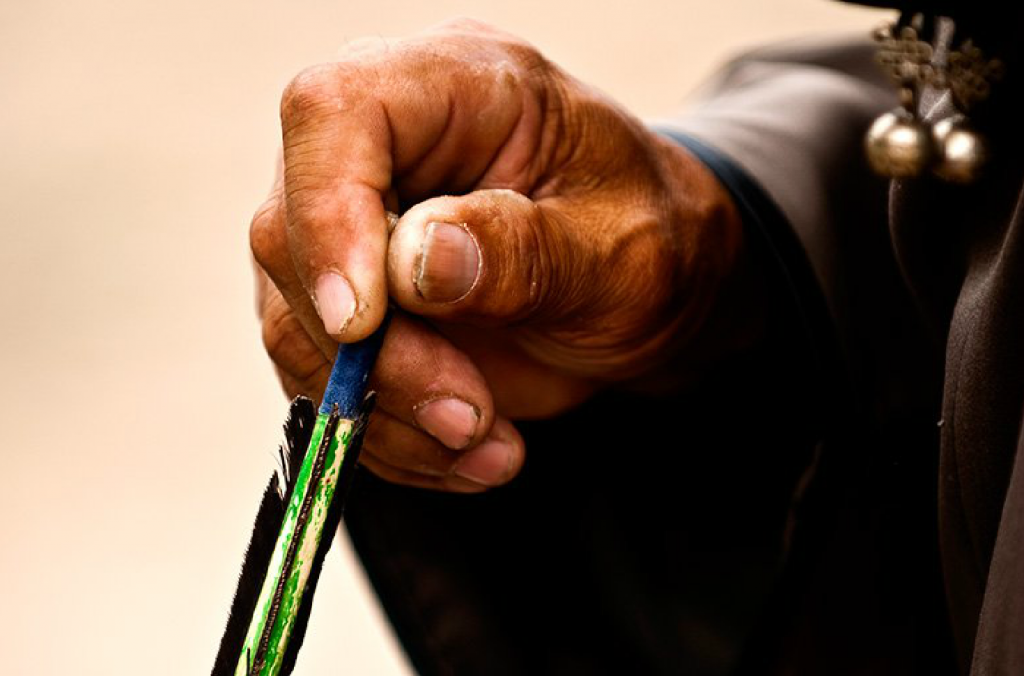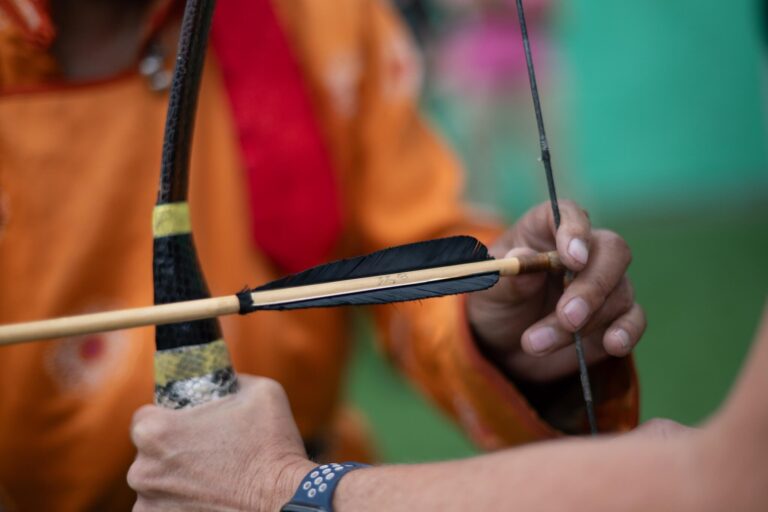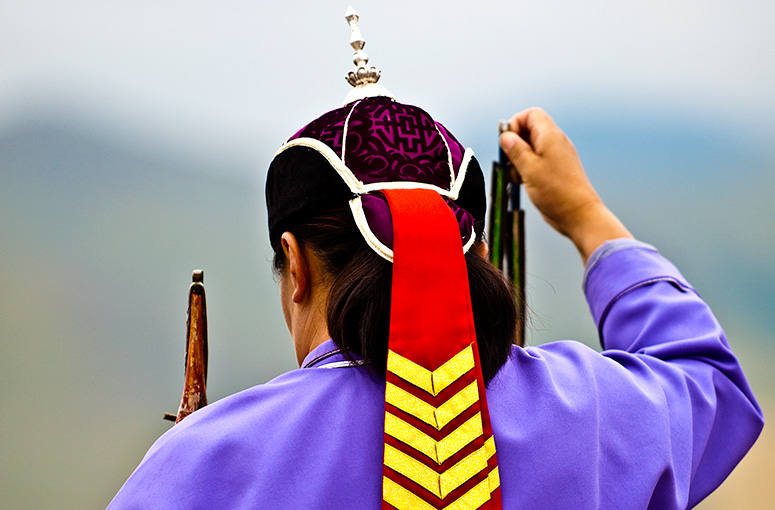Mongolian Archery – A Living Tradition
The crack of an arrow loosed into the air is one of the most familiar sounds at Mongolia’s summer Naadam Festival. Crowds lean forward, eyes following its flight, before the call of uukhai erupts from the judges, signalling a successful hit. As well as a sport, archery in Mongolia is a thread of heritage that stretches back through centuries of survival, myth, and conquest. From the legends of Erkhii Mergen shooting down suns to the bows that carried the Mongol Empire across continents, this tradition remains alive and vibrant today.
Table of Contents

A Historical Perspective
For the Mongols, the bow was more than a weapon—it was a lifeline. It was used in battle, from standing on the ground to firing at full speed from horseback, and it put food on the table during hunts. Stories of archery are woven into Mongolian folklore and history. One tale speaks of Erkhii Mergen, the archer who saved his people from a terrible drought by shooting six blazing suns from the sky. In The Secret History of the Mongols, another story reveals how archery became a metaphor for unity: one of Chinggis Khan’s ancestors, hoping to end a quarrel among her sons, handed each a single arrow to snap with ease. Then she bound five arrows together and challenged them again—this time, the arrows held strong. Together, their strength was unbreakable.
The Bow and Arrows of Mongolia
Mongolia’s composite bow is as remarkable as the culture it comes from. Handmade using horn, leather, birch wood and bark, and fish glue, each bow carries layers of resilience. Even when unstrung, it retains its distinctive curve. Arrows, crafted from birch, take their flight from feathers of local birds, their tips forged from metal, bone, or wood.
During competitions, archers constantly calibrate their shots. A bow softened by the sun requires a longer draw; one hardened by the chill requires less. Wind direction, temperature, and even the shifting light all play their part. Each arrow loosed is a calculation of instinct and experience. The very best archers earn the title of mergen—a sharpshooter and state marksman.

Three Styles of Mongolian Archery
Archery in Mongolia is not a single style but a collection of traditions. At the Naadam Festival, three are showcased: Khalkh, Buriat, and Uriankhai.
Khalkh archery, the national style, is the most widely practiced and features the longest shooting distances, standardised by age and gender. It is the style used in national championships.
Uriankhai style involves only male competitors shooting from 30 and 40 metres.
Buriat style welcomes both men and women, with shooting distances ranging from 30 to 45 metres.
Typically, more than 300 archers take part in these three disciplines during the state Naadam, filling the field with colour, skill, and tradition.

The Language of Judging
On the archery field, watch the judges—known as surchid. Standing by the targets, they use gestures and shouts to communicate with archers. A raised hand and the call of uukhai celebrates a hit. Sweeping palms indicate an arrow has flown high, while outstretched arms show it has fallen short. Sometimes the arrows reach but fail to shift a target, and the surchid respond with a drumming motion of their hands. This body language becomes part of the rhythm of the competition, guiding archers as they adjust for their next shot.
Archery and UNESCO Recognition
Mongolia joined UNESCO’s Convention for the Safeguarding of Intangible Cultural Heritage in 2005. Among the traditions recognised is the Naadam Festival, with archery at its heart. It is not simply a competition but a living expression of Mongolia’s identity, resilience, and community. Learn more here.
Experience Mongolian Archery Yourself
Book Our Archery Training & Workshop Experience
At Eternal Landscapes, we work in long-term community partnership with Tomorkhuu Batmunkh—one of Mongolia’s most successful archers and a master craftsman of the Mongolian composite bow. Through our archery workshops, guests are welcomed into his home to learn not only the skill of shooting but also the intricate art of bow making. It is a hands-on encounter with a tradition that has shaped Mongolia for generations.
The photographs in this post were taken by EL guests who stepped onto the archery field themselves, connecting directly with Mongolia’s living heritage. To discover this great experience, explore our archery workshop and meet the people who keep these traditions alive.
Jess @ Eternal Landscapes







